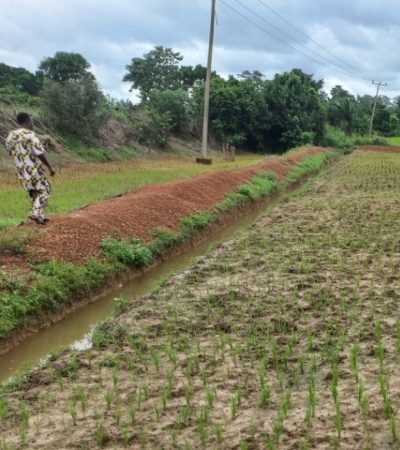Imagine working for months to feed, breed and raise catfish and tilapia and then watching half of your harvest slip away into the mud. Until recently, Kanli Farm in Tode, Benin was facing this frustration year after year.
Tode is an agricultural village in Azowlisse district, 30 kilometers from Benin’s capital, Porto Novo. Kanli Farm, owned by local entrepreneur Moise Gbenou in cooperation with a local non-governmental organization, produces trees, vegetables and animals including rabbits, chickens, fish and bees.
Gbenou struggled to make his fish ponds profitable because he lacked the resources to invest in modern pond infrastructure that would keep his fish from escaping. Without any structured barriers around the ponds, his fish farm was primarily comprised of a boggy stretch of land where fish could easily hide deep in the mud and escape harvest. As a result, Kanli Farm wasn’t seeing a return on investment in the fish-raising end of the business.
Through the Feed the Future-supported West Africa Food Security Partnership between the Peace Corps and the U.S. Agency for International Development, Gbenou was able to secure a small grant to invest in his business. Kanli Farm constructed five concrete tanks to hold young and adult fish, increasing its contribution to the region’s food security and expanding its capacity to train local smallholder farmers. Tode’s residents earn income primarily through agriculture and raising animals, so Kanli Farm aims to stand out in the local market by improving the efficiency and environmental impact of local agricultural practices.
Gbenou invites students from the village to participate in technical skills exchange programs that can help them pursue future work in aquaculture. At Kanli Farm, youth from Tode and the surrounding communities learn how to propagate species, care for fish during each phase of development and transfer them between tanks.
Since constructing a sixth fish tank on Kanli Farms, Gbenou is seeing fish propagation occur almost every week, as there are holding tanks for fish in all different developmental stages. The farm sells its products locally, supporting an affordable and diverse diet for local families. With his increased profits, Gbenou plans to help accelerate development in Tode.




